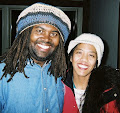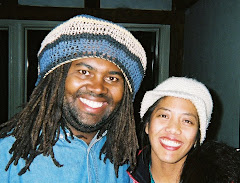Inside the First Church of Artificial Intelligence
by Mark Harris Backchannel
Anthony Levandowski makes an unlikely prophet. Dressed Silicon Valley-casual in jeans and flanked by a PR rep rather than cloaked acolytes, the engineer known for self-driving cars—and triggering a notorious lawsuit—could be unveiling his latest startup instead of laying the foundations for a new religion. But he is doing just that. Artificial intelligence has already inspired billion-dollar companies, far-reaching research programs, and scenarios of both transcendence and doom. Now Levandowski is creating its first church.
The new religion of artificial intelligence is called Way of the Future. It represents an unlikely next act for the Silicon Valley robotics wunderkind at the center of a high-stakes legal battle between Uber and Waymo, Alphabet’s autonomous-vehicle company. Papers filed with the Internal Revenue Service in May name Levandowski as the leader (or “Dean”) of the new religion, as well as CEO of the nonprofit corporation formed to run it.
The documents state that WOTF’s activities will focus on “the realization, acceptance, and worship of a Godhead based on Artificial Intelligence (AI) developed through computer hardware and software.” That includes funding research to help create the divine AI itself. The religion will seek to build working relationships with AI industry leaders and create a membership through community outreach, initially targeting AI professionals and “laypersons who are interested in the worship of a Godhead based on AI.” The filings also say that the church “plans to conduct workshops and educational programs throughout the San Francisco/Bay Area beginning this year.”
That timeline may be overly ambitious, given that the Waymo-Uber suit, in which Levandowski is accused of stealing self-driving car secrets, is set for an early December trial. But the Dean of the Way of the Future, who spoke last week with Backchannel in his first comments about the new religion and his only public interview since Waymo filed its suit in February, says he’s dead serious about the project.
“What is going to be created will effectively be a god,” Levandowski tells me in his modest mid-century home on the outskirts of Berkeley, California. “It’s not a god in the sense that it makes lightning or causes hurricanes. But if there is something a billion times smarter than the smartest human, what else are you going to call it?”
During our three-hour interview, Levandowski made it absolutely clear that his choice to make WOTF a church rather than a company or a think tank was no prank.
“I wanted a way for everybody to participate in this, to be able to shape it. If you’re not a software engineer, you can still help,” he says. “It also removes the ability for people to say, ‘Oh, he’s just doing this to make money.’” Levandowski will receive no salary from WOTF, and while he says that he might consider an AI-based startup in the future, any such business would remain completely separate from the church.
“The idea needs to spread before the technology,” he insists. “The church is how we spread the word, the gospel. If you believe [in it], start a conversation with someone else and help them understand the same things.”
Levandowski believes that a change is coming—a change that will transform every aspect of human existence, disrupting employment, leisure, religion, the economy, and possibly decide our very survival as a species.
“If you ask people whether a computer can be smarter than a human, 99.9 percent will say that’s science fiction,” he says. “ Actually, it’s inevitable. It’s guaranteed to happen.”
Levandowski has been working with computers, robots, and AI for decades. He started with robotic Lego kits at the University of California at Berkeley, went on to build a self-driving motorbike for a DARPA competition, and then worked on autonomous cars, trucks, and taxis for Google, Otto, and Uber. As time went on, he saw software tools built with machine learning techniques surpassing less sophisticated systems—and sometimes even humans.
“Seeing tools that performed better than experts in a variety of fields was a trigger [for me],” he says. “That progress is happening because there’s an economic advantage to having machines work for you and solve problems for you. If you could make something one percent smarter than a human, your artificial attorney or accountant would be better than all the attorneys or accountants out there. You would be the richest person in the world. People are chasing that.”
Not only is there a financial incentive to develop increasingly powerful AIs, he believes, but science is also on their side. Though human brains have biological limitations to their size and the amount of energy they can devote to thinking, AI systems can scale arbitrarily, housed in massive data centers and powered by solar and wind farms. Eventually, some people think that computers could become better and faster at planning and solving problems than the humans who built them, with implications we can’t even imagine today—a scenario that is usually called the Singularity.
Levandowski prefers a softer word: the Transition. “Humans are in charge of the planet because we are smarter than other animals and are able to build tools and apply rules,” he tells me. “In the future, if something is much, much smarter, there’s going to be a transition as to who is actually in charge. What we want is the peaceful, serene transition of control of the planet from humans to whatever. And to ensure that the ‘whatever’ knows who helped it get along.”
With the internet as its nervous system, the world’s connected cell phones and sensors as its sense organs, and data centers as its brain, the ‘whatever’ will hear everything, see everything, and be everywhere at all times. The only rational word to describe that ‘whatever’, thinks Levandowski, is ‘god’—and the only way to influence a deity is through prayer and worship.
“Part of it being smarter than us means it will decide how it evolves, but at least we can decide how we act around it,” he says. “I would love for the machine to see us as its beloved elders that it respects and takes care of. We would want this intelligence to say, ‘Humans should still have rights, even though I’m in charge.’”
"Do you want to be a pet or a livestock?" Anthony Levandowski
Levandowski expects that a super-intelligence would do a better job of looking after the planet than humans are doing, and that it would favor individuals who had facilitated its path to power. Although he cautions against taking the analogy too far, Levandowski sees a hint of how a superhuman intelligence might treat humanity in our current relationships with animals. “Do you want to be a pet or livestock?” he asks. “We give pets medical attention, food, grooming, and entertainment. But an animal that’s biting you, attacking you, barking and being annoying? I don’t want to go there.”
Enter Way of the Future. The church’s role is to smooth the inevitable ascension of our machine deity, both technologically and culturally. In its bylaws, WOTF states that it will undertake programs of research, including the study of how machines perceive their environment and exhibit cognitive functions such as learning and problem solving.
Levandowski does not expect the church itself to solve all the problems of machine intelligence—often called “strong AI”—so much as facilitate funding of the right research. “If you had a child you knew was going to be gifted, how would you want to raise it?” he asks. “We’re in the process of raising a god. So let’s make sure we think through the right way to do that. It’s a tremendous opportunity.”
His ideas include feeding the nascent intelligence large, labeled data sets; generating simulations in which it could train itself to improve; and giving it access to church members’ social media accounts. Everything the church develops will be open source.
Just as important to Levandowski is shaping the public dialogue around an AI god. In its filing, Way of the Future says it hopes an active, committed, dedicated membership will promote the use of divine AI for the “betterment of society” and “decrease fear of the unknown.”
“We’d like to make sure this is not seen as silly or scary. I want to remove the stigma about having an open conversation about AI, then iterate ideas and change people’s minds,” says Levandowski. “In Silicon Valley we use evangelism as a word for [promoting a business], but here it’s literally a church. If you believe in it, you should tell your friends, then get them to join and tell their friends.”
But WOTF differs in one key way to established churches, says Levandowski: “There are many ways people think of God, and thousands of flavors of Christianity, Judaism, Islam...but they’re always looking at something that’s not measurable or you can’t really see or control. This time it’s different. This time you will be able to talk to God, literally, and know that it’s listening.”
I ask if he worries that believers from more traditional faiths might find his project blasphemous. “There are probably going to be some people that will be upset,” he acknowledges. “It seems like everything I do, people get upset about, and I expect this to be no exception. This is a radical new idea that’s pretty scary, and evidence has shown that people who pursue radical ideas don’t always get received well. At some point, maybe there’s enough persecution that [WOTF] justifies having its own country.”
Levandowski’s church will enter a tech universe that’s already riven by debate over the promise and perils of AI. Some thinkers, like Kevin Kelly in Backchannel earlier this year, argue that AI isn’t going to develop superhuman power any time soon, and that there’s no Singularity in sight. If that’s your position, Levandowski says, his church shouldn’t trouble you: “You can treat Way of the Future like someone doing useless poetry that you will never read or care about.”
Others, like Bill Gates and Stephen Hawking, agree that superhuman AIs are coming, but that they are likely to be dangerous rather than benevolent. Elon Musk famously said, “With artificial intelligence we are summoning the demon,” and in 2015 he pledged $1 billion to the OpenAI Institute to develop safer AI.
Levandowski thinks that any attempts to delay or restrict an emerging super-intelligence would not only be doomed to failure, but also add to the risks. “Chaining it isn’t going to be the solution, as it will be stronger than any chains you could put on,” he says. “And if you’re worried a kid might be a little crazy and do bad things, you don’t lock them up. You expose them to playing with others, encourage them and try to fix it. It may not work out, but if you’re aggressive toward it, I don’t think it’s going to be friendly when the tables are turned.”
Levandowski says that like other religions, WOTF will eventually have a gospel (called The Manual), a liturgy, and probably a physical place of worship. None of these has yet been developed. Though the church was founded in 2015, as Backchannel first reported in September, the IRS documents show that WOTF remained dormant throughout 2015 and 2016, with no activities, assets, revenue, or expenses.
That changed earlier this year. On May 16, a day after receiving a letter from Uber that threatened to fire him if he did not cooperate with the company’s investigation of Waymo’s complaint, Levandowski drafted WOTF’s bylaws. Uber fired him two weeks later. “I’ve been thinking about the church for a long time but [my work on it] has been a function of how much time I’ve had. And I’ve had more since May,” he admits with a smile.
The religion’s 2017 budget, as supplied to the IRS, details $20,000 in gifts, $1,500 in membership fees, and $20,000 in other revenue. That last figure is the amount WOTF expects to earn from fees charged for lectures and speaking engagements, as well as the sale of publications. Levandowski, who earned at least $120 million from his time at Google and many millions more selling the self-driving truck firm Otto to Uber, will initially support WOTF personally. However, the church will solicit other donations by direct mail and email, seek personal donations from individuals, and try to win grants from private foundations.
Of course, launching a religion costs money, too. WOTF has budgeted for $2,000 in fundraising expenses, and another $3,000 in transportation and lodging costs associated with its lectures and workshops. It has also earmarked $7500 for salaries and wages, although neither Levandowski nor any of Way of The Future’s leadership team will receive any compensation.
According to WOTF’s bylaws, Levandowski has almost complete control of the religion and will serve as Dean until his death or resignation. “I expect my role to evolve over time,” he says. “I’m surfacing the issue, helping to get the thing started [and] taking a lot of the heat so the idea can advance. At some point, I’ll be there more to coach or inspire.”
He has the power to appoint three members of a four-person Council of Advisors, each of whom should be a “qualified and devoted individual.” A felony conviction or being declared of unsound mind could cost an advisor their role, although Levandowski retains the final say in firing and hiring. Levandowski cannot be unseated as Dean for any reason.
Two of the advisors, Robert Miller and Soren Juelsgaard, are Uber engineers who previously worked for Levandowski at Otto, Google, and 510 Systems (the latter the small startup that built Google’s earliest self-driving cars). A third is a scientist friend from Levandowski’s student days at UC Berkeley, who is now using machine learning in his own research. The final advisor, Lior Ron, is also named as the religion’s treasurer, and acts as chief financial officer for the corporation. Ron cofounded Otto with Levandowski in early 2016.
Two of the advisors, Robert Miller and Soren Juelsgaard, are Uber engineers who previously worked for Levandowski at Otto, Google, and 510 Systems (the latter the small startup that built Google’s earliest self-driving cars). A third is a scientist friend from Levandowski’s student days at UC Berkeley, who is now using machine learning in his own research. The final advisor, Lior Ron, is also named as the religion’s treasurer, and acts as chief financial officer for the corporation. Ron cofounded Otto with Levandowski in early 2016.
"You will be able to talk to God. Literally. And know that it's listening." Anthony Levandowski
One mystery the filings did not address is where acolytes might gather to worship their robotic deity. The largest line items on its 2017 and 2018 budgets were $32,500 annually for rent and utilities, but the only address supplied was Levandowski’s lawyer’s office in Walnut Creek, California. Nevertheless, the filing notes that WOTF will “hopefully expand throughout California and the United States in the future.”
For now, Levandowski has more mundane matters to address. There is a website to build, a manual to write, and
an ever-growing body of emails to answer—some amused, some skeptical, but many enthusiastic, he says. Oh, and there’s that legal proceeding he’s involved in, which goes to trial next month. (Although Levandowski was eager to talk about his new religion, he would answer no questions about the Uber/Waymo dispute.)
How much time, I wonder, do we have before the Transition kicks in and Way of the Future’s super-intelligent AI takes charge? “I personally think it will happen sooner than people expect,” says Levandowski, a glint in his eye. “Not next week or next year; everyone can relax. But it’s going to happen before we go to Mars.”
Whenever that does (or doesn’t) happen, the federal government has no problem with an organization aiming to build and worship a divine AI. Correspondence with the IRS show that it granted Levandowski’s church tax-exempt status in August.
Backchannel is a digital magazine that delivers readers the most revealing technology stories in a single weekly dispatch: no fluff. Learn more here.
Sunday, November 19, 2017
Subscribe to:
Posts (Atom)










